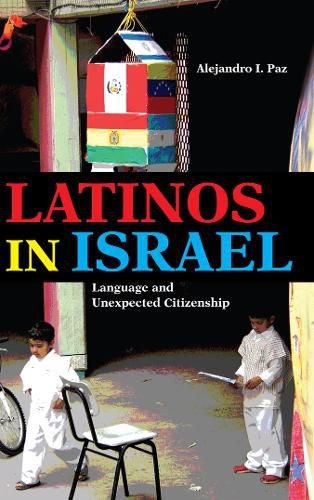Readings Newsletter
Become a Readings Member to make your shopping experience even easier.
Sign in or sign up for free!
You’re not far away from qualifying for FREE standard shipping within Australia
You’ve qualified for FREE standard shipping within Australia
The cart is loading…






Latinos in Israel charts the unexpected ways that non-citizen immigrants become potential citizens. In the late 1980s Latin Americans of Christian background started arriving in Israel as labor migrants. Alejandro Paz examines the ways they perceived themselves and were perceived as potential citizens during an unexpected campaign for citizenship in the mid-2000s. This ethnographic account describes the problem of citizenship as it unfolds through language and language use among these Latinos both at home and in public life, and considers the different ways by which Latinos were recognized as having some of the qualities of citizens. Paz explains how unauthorized labor migrants quickly gained certain limited rights, such as the right to attend public schools or the right to work. Ultimately engaging Israelis across many such contexts, Latinos, especially youth, gained recognition as citizens to Israeli public opinion and governing politics. Paz illustrates how language use and mediatized interaction are under-appreciated aspects of the politics of immigration, citizenship, and national belonging.
$9.00 standard shipping within Australia
FREE standard shipping within Australia for orders over $100.00
Express & International shipping calculated at checkout
Latinos in Israel charts the unexpected ways that non-citizen immigrants become potential citizens. In the late 1980s Latin Americans of Christian background started arriving in Israel as labor migrants. Alejandro Paz examines the ways they perceived themselves and were perceived as potential citizens during an unexpected campaign for citizenship in the mid-2000s. This ethnographic account describes the problem of citizenship as it unfolds through language and language use among these Latinos both at home and in public life, and considers the different ways by which Latinos were recognized as having some of the qualities of citizens. Paz explains how unauthorized labor migrants quickly gained certain limited rights, such as the right to attend public schools or the right to work. Ultimately engaging Israelis across many such contexts, Latinos, especially youth, gained recognition as citizens to Israeli public opinion and governing politics. Paz illustrates how language use and mediatized interaction are under-appreciated aspects of the politics of immigration, citizenship, and national belonging.